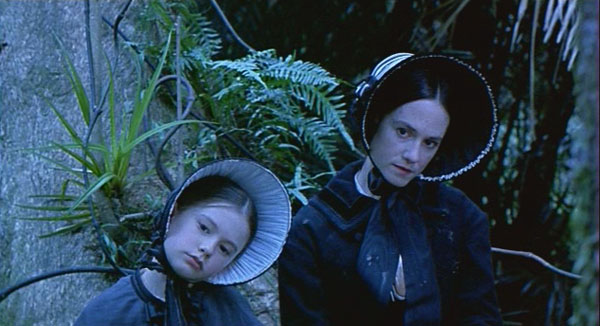
We will finish watching Campion's 'The Piano' tomorrow and I am looking forward to hearing your responses to the film. It offers a complex representation of gender and seeks to challenge notions of patriarchy. Over the Easter holiday, I would like you to write an essay in response to the three films watched. Choose 1 of the following essay questions and using the three key films studied (Tomb Raider, Thelma and Louise & The Piano) and any other examples, answer one of these over the Easter holiday:
GENDERED FILM STUDIES
GENDERED FILM STUDIES
- Explore the benefits of applying a gendered critical approach to studying film with reference to specific case studies.
- Is it too simple to say that some films target male audiences and other target female audiences?
- How does a focus on gender contribute to the understanding of meaning and value in films?
- What is the ‘male’ camera debate? Does film language create a gendered ‘look’?
- What is to be gained by considering the position of a male or female spectator?
- Does mainstream film represent male and female characters differently? Might this determine whether the spectator can identify with or objectify the character?
- How might gender affect the construction of male and female stereotypes and/or stars?
The following article will help to inform your knowledge and understanding of the 'The Representation of Gender/Femininity in The Piano' and is a MUST read:
From its beginnings, the film industry generally excluded women from the film-making process.
http://www.associatedcontent.comarticle/49323/the_representation_of_genderfemininity.html
Jane Campion’s “The Piano” takes place in mid-19th century New Zealand. Do some research about the colonial history in New Zealand and see how it helps you understand film.
Do some research about Jane Campion’s filmography to identify the common themes in her work.
- How does the opening sequence help you understand Ada?
- Why is Ada described as a “mail-order bride”?
- What does Ada’s muteness signify in the film?
- How do you think the New Zealand landscape with its forests, thick mud, sea and beach helps us understand the film?
- What does a comparison between Stewart’s house and Baines’ house reveal about these two characters?
- Analyze the characters of Stewart and Baines in relation to their relations to Ada and to the Maori.
- Examine Stewart’s and Baines’s clothes and discuss what they reveal about these two men.
- What does “land” mean to Stewart? What does it mean to the Maori?
- Examine the piano metaphor in the film. What meaning(s) does it carry for different people in the film? Why does Ada need to claim it back?
- What does Ada’s physical appearance (e.g. her clothes, her hair style) reveal about her and the society in which she lives?
- Why do you think there is so much emphasis on buying and selling in the film? (Suggested reading: Ann Hardy’s “The Last Patriarch” in “Cambridge Film Handbooks: Jane Campion’s The Piano”, Harriet Margolis (Ed.), page. 72, 1st Edition, 2000)
- What is the function of the Bluebeard play show in the film?
- Identify the imagery of whiteness and blackness in the film and discuss what such imagery reveals.
- What does Flora stand for in the film? How would you explain the change in Flora’s attitude towards her mother?
- Identify some phallic symbols in the film and discuss their significance.
- What is the symbolic value of Stewart’s cruel punishment of Ada? In this part of the film how does Jane Campion encourage the viewers to identify with Ada?
- Do you find Campion’s portrayal of the Maori stereotypical? Why? Why not? Give your reasons.
- Examine Laura Mulvey’s argument of “male gaze” in her famous article “Visual Pleasure and Narrative Cinema” (1975) and discuss to what extent and in what ways patriarchal conventions in filmmaking are challenged in Jane Campion’s “The Piano”.
- Examine the relationship between Ada and the men around her in the light of French anthropologist Levi-Strauss’s theory of exchange.
- What helps you identify the narrative voice in the film?
- What is your interpretation of the film’s double ending?
- Explore the theme of power struggle in the film.
- Do you think the film makes a successful critique of phallocentrism? Give your reasons.
- What link does the film establish between colonialism and patriarchy?
- Jane Campion quoted in Judith Lewis’s “Wholly Jane”, L.A. Weekly, January 27, 2000:”The laws of men and women in Western society are carefully unwritten,… And feeling them, facing up to them, is like the pain of having a baby — no one will ever tell you about it, really, because it’s just beyond communicating. It’s so bad, so big, so enormous, that you can’t describe it or even believe it. In a way it’s the same for women feeling the world, facing the world. I don’t even talk about it, because it sounds like whingeing. But I’m not whingeing. I’m screaming.”
- “I like to be able to project myself into the parts,…. and being a woman I like to therefore have heroines. We don’t have many, you know? So I feel like it’s my job. Not a crusade - just a natural thing to want to do.”
- In light of the quotations above, discuss Jane Campion’s rationale in film making in relati








No comments:
Post a Comment